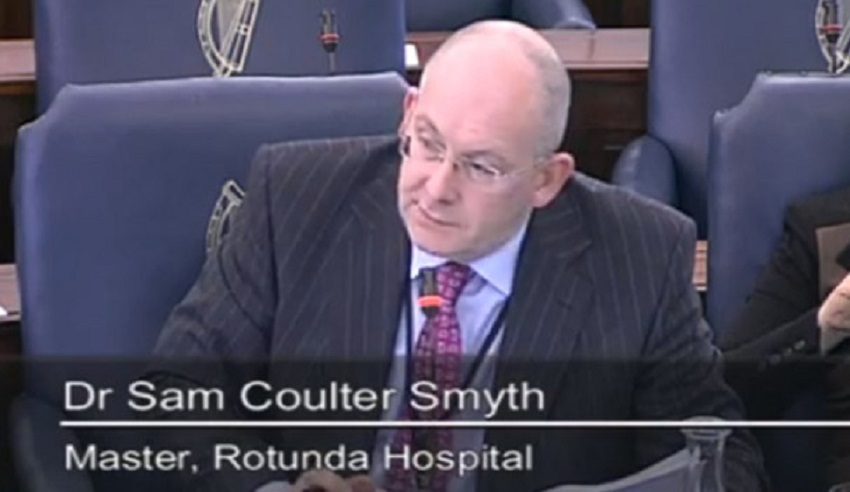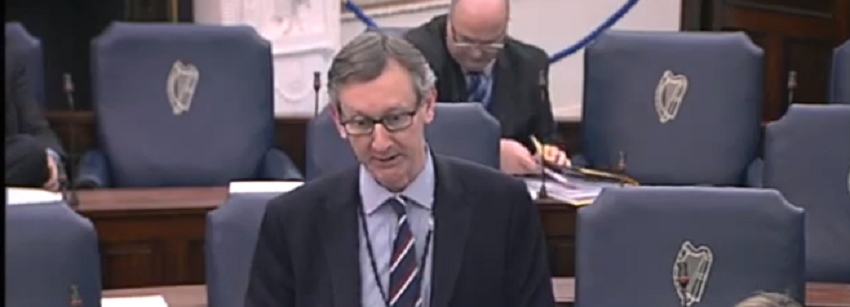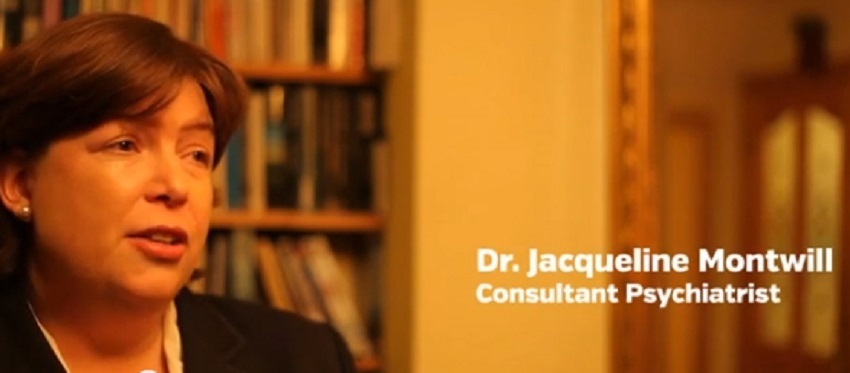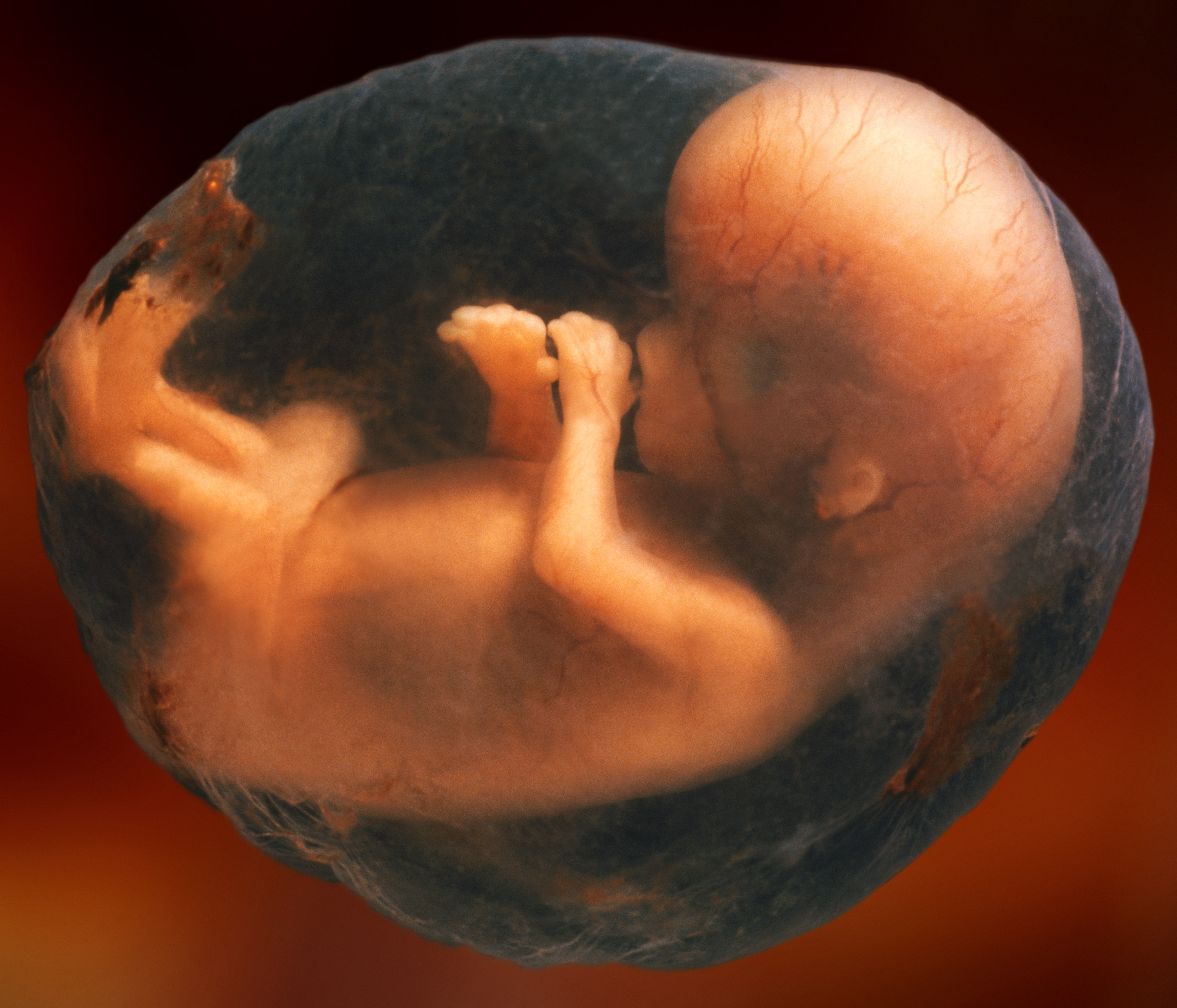Committee Hearings: 2013
- Home
- Information
- Committee Hearings: 2013

Health Committee Hearings on Abortion
Read the brief on the January Hearings here...
Read the submission from Li to the Hearings here...
Read the submission to the May Hearings here...
Read the submission given by Dr. Sean O'Domhnaill at the May Hearings...
Abortion hearings: May 2013
The Oireachtas Committee on Health and Children has held a further three days of hearings from medical and legal experts on the draft Abortion Bill, which seeks to legalise abortion on suicide grounds. The hearings were held in the Seanad from 17th - 22nd May.
17 May: Top Obstetrician opposes suicide clause
The Master of Dublin's busiest Maternity hospital, Dr Sam Coulter Smith, has said there are 'major ethical and moral dilemmas' arising for Obstetricians from the draft legislation currently proposed by the government.
He also warned of a possible 'surge' in the number of abortions if the proposal became law. Dr Coulter Smith said that there was no evidence that abortion was a treatment for suicidal ideation or intent, and that obstetricians were required to provide and practice evidence-based medicine.
"In respect of loss of life from self-destruction there are a number of issues that need to be raised. First, this is an extraordinarily rare situation with the incidence of suicide in pregnancy of the order of one in 500,000 pregnancies as per United Kingdom figures. Second, our psychiatric colleagues tell us that there is currently no available evidence to show that termination of pregnancy is a treatment for suicidal ideation or intent and, as obstetricians, we are required to provide and practice evidence-based treatment," he said.
He said the legislation, therefore, created an ethical dilemma for any obstetrician who is requested to perform a termination of pregnancy for the treatment of someone with either suicidal ideation or intent.
Dr Coulter Smith said that the fact that there is no gestational limit in the legislation relating to suicidality was a "a major ethical issue for obstetricians".
"First, let us consider the case of a patient who is 25 weeks' gestation. If she is deemed to be sufficiently suicidal to require a termination of pregnancy by one or more psychiatric colleagues, an obstetrician who is tasked with dealing with this situation is faced with an enormous ethical dilemma. Delivering a baby at 25 weeks' gestation could lead to death, due to extreme prematurity or it could lead to a child with cerebral palsy or with other significant developmental issues for the future."
"This is a source of serious concern for myself and my colleagues," he said.
Dr Coulter Smith also said that many Obstetricians thought the legislation might lead to a surge in the number of abortion being sought.
"It is my view and the view of many of my colleagues that the inclusion of suicidality within the legislation may, and I stress may, in the long term lead to an increase in demand for termination in this country," he said.
Fellow Obstetrician, Dr John Monaghan of Portiuncula Hospital, said that the proposal would bring "an enormous change in obstetric practice that an obstetrician is being asked to intervene in a physically healthy pregnancy." He added that he was extremely unhappy with the idea of Obstetricians becoming a "mindless terminator for psychiatric reasons".
Dr Monaghan warned that the "psychiatric or suicide risk clause has been brought in other jurisdictions and has been widely - I would say universally - abused".

19 May: Leading Psychiatrists - Bill not evidence-based
- Top expert warns it could 'normalise suicide'
Top perinatal psychiatrist, Dr John Sheehan, said that patients who were suicidal needed professional help, not an urgent termination of pregnancy. The proposal would make " psychiatrists the gatekeepers to abortion", he said, adding that it was impossible for psychiatrists to predict the future and that "being unable to predict who will die by suicide is, therefore, likely to lead to multiple 'false positives'".
He warned that there was no time limit set in the heads of Bill, and late term abortion could have a very negative effect on the woman's mental health.
Dr. Sheehan also said that abortion could "increase the risk of mental health problems" amongst women.

Renowned psychiatrist and Ireland's top expert on suicide and its causes, Professor Kevin Malone, gave compelling evidence to the hearing. He said that the proposed abortion legislation could accelerate suicide rates in younger men, and that "contrary to the notion of it saving the lives of an extremely small number of females it may be placing a greater number of young male lives at risk."
He told the Committee that abortion was not an evidenced based treatment for mental illness and asked "as a clinician, I wonder how then it can overnight become a recommended psychiatric treatment in Ireland."
Dr Seán Ó Domhnaill, a consultant psychiatrist, said that the proposed law would make abortionists of doctors and that abortion was a "medieval solution to crisis pregnancies". He also warned that "it is a fact that there are some psychiatrists who are ideologically supportive of abortion and who believe it should be available on request or on demand to Irish women. It stretches the boundaries of credibility to suggest that those psychiatrists would not be more likely to approve abortions if the Bill becomes law.
"Dr Ó Domhnaill said that he had worked in other jurisdictions where consent forms for abortion had been pre-signed by doctors.
Psychiatrist Dr. Jacqueline Montwill said that "with this law, the focus will be directed away from a full and proper assessment of the patient towards an assessment for a direct abortion." She said the proposal to legalise abortion on suicide grounds was "seriously flawed" since abortion was not a treatment, and patients who were truly suicidal with mental illness may not be able to give a valid consent.

Her colleague, Dr Bernie McCabe, said that rather than legalising abortion an "evidence based clinical care pathway that would assist women who are suicidal" should be put in place "because abortion as a treatment for suicidality is not evidence based."
She noted that "what seems to be intuitively correct may not be so" and that if psychiatrists "offer abortion when we know there is no evidence base, we are not being fair, right or just to our patients. Our patients deserve that we be just."
- Legislation will most likely apply to teenage girls in care
- Abortion bill risks normalising suicide
- Suicide in pregnancy a real risk, says doctor
- Psychiatrist warn of unecessary terminations
20 May: Legal experts say bill means abortion until birth
On Tuesday, the Oireachtas joint committee on health and children focused on the legal aspects of the heads of Bill, and heard evidence from legal and medical ethics experts:
The main points made were:
- There is no legal obligation on the government to legislate for abortion in the case of threatened suicide. The draft Bill permits abortion on suicide grounds - and the threat of suicide need not be inevitable nor immediate.
- The government is not obliged to legislate for the X, as the case did not set a legal precedent on legalising abortion on suicide grounds, because the was a conceded point not a legally established one
- Without the X case to rely on, Head 4 of the Bill (legalising abortion on suicide grounds) is simply incompatible with the Constitution, because it allows the deliberate targeting of the life of the unborn in Head 4.
- The X case is not the final or only case where suicidality was the plaintiff’s main argument. In the case of Cosma v. Minister for Justice, the argument was refuted for 3 reasons, all of which are relevant to X. The Supreme Court in that case found that
- Heads 2, 3, and 4 of the proposed legislation would allow for the direct and intentional termination of the life of the child right up until birth.
- The bill’s accommodation of medical ethics is dated, regressive, and potentially dangerous.
Predictably enough Head 4 of the proposed legislation, which deals with the threat of self destruction, was the focus of the most vigorous debate. The discussion on the rest of the Heads centred, for the most part, on wording details and clarity, all of which could be corrected with amendment of the wording.
From the testimonies it transpired that we are not bound by the ECHR or by the decision of the Supreme Court in the X case. It was stated by four legal experts, that we are not obliged by the X case to legislate to allow for abortion for the threat of suicide. They said that the X case ruling was only applicable to the case itself and did not, in fact, set a precedent.
Barrister, Paul Brady, criticised the government's claim a 'requirement' to legislate for abortion on suicide grounds. He criticised the government for falling back on this argument, protesting continuously that they have no choice but to legislate, despite the fact that there is no legal basis for that protest.
He said that Head 4 marks a clear change in the law because it creates a statutory basis in Irish law for what may be a direct and intentional termination of an unborn child’s life. Mr. Brady said that under Head 4 “that the aim of the procedure can be to bring about the death of the child”
Head 4 allows for an abortion to take place up to nine months, even on a partially delivered child (arising from the definition of unborn in Head 1).
But Mr. Brady argued that legislation on the X-case decision was not obligatory because the suicide principle in the X-case “was a conceded point and was never argued in the X-case.” He explained that in the X-case there was no “legitimus contradictor” to argue against, and test the decision, and therefore it could only bind the particular case. Justice McCarthy referred to the same in his X case judgement.
In making this point he quoted Justice Brian Walsh who was a member of the ECHR, the Irish Supreme Court, and the law reform commission etc.
This point was also argued by Dr. Maria Cahill who acknowledged the importance of respecting precedents, but highlighted that the Supreme Court’s own understanding of precedent is that if the point has not been argued, then it does not form part of the decision of the Court. She cited the case of Attorney General v. Ryan's Car Hire Ltd” in which the Supreme Court stated that when a point has been conceded, the precedential value of the decision on that point is “weakened to vanishing point”.

In layman’s terms, because the point was conceded in the X case - arguments were not made for or against – its constitutionality and legal weight was not tested and it was therefore not established as a principle of law.
This is relevant to the X case because in the X case, there were no arguments on the point of whether suicidality could – as a matter of medicine or as a matter of law – legitimately be treated by abortion. Therefore the threat of suicide as conceded in the X case does not set a legal precedent and “the rhetoric that we are compelled to legislate for the X case” is unsupported.
Without the X case, Head 4 must simply be measured against the Constitution, which recognises unambiguously that unborn, as well as born, persons, enjoy a fundamental right to life. The deliberate targeting of the life of the unborn makes this legislation unconstitutional.
The UCC law lecturer added that since the X-case the suicide imperative has been used and developed by the 2006 case of Cosma v. Minister for Justice in three ways, all of which would be violated by head 4.
The X-case judgment has been criticised for being flawed and for being dated considering the amount of evidence based medicine that rejects abortion as a treatment for suicidality, but far more pertinent to the heads of bill we learned that it has no weight as precedent because it was a conceded point. Even though the government constantly fall back on the obligation to legislate argument, not one of the legal witnesses who support the legislation contested this assessment.
Prof. William Binchy shared what seems a unanimous view that Head 2 and 3, which deal with treatments to women which require the termination of pregnancy rather than the explicit termination of the life of the child, are ethical and reflective of current medical practice. Head 4 however, “gives us the scenario that the existence of the child causes suicidal ideation” he said. So this clause allows intentional killing of the child right up until delivery.
Dr. Ciarán Craven spoke strongly about legal ethics shortfalls in the heads. In particular he said that the notion of “good will” as used in the heads insufficiently regulated the nature of patient doctor relations. He said that while “good faith” was necessary, it is not sufficient.
He offered the opinion that the old models of good faith leads to a danger of clinical hegemony and potential abuse. He said that bad faith is virtually impossible to demonstrate but “by incorporating a reference to evidence based practice we are providing a template against which to measure”. He put it that “Good faith and proper professional practice are not interchangeable” and added that relying on good faith is insufficient, according to both the courts and the Medical Council.
Read more: Barrister contests Taoiseach's Claim
Abortion Hearings: Jan 2013
The Oireachtas Committee on Health and Children has held three days of hearings from medical and legal experts and advocacy groups on the issue of abortion. They were held in the Seanad from 8 - 10th January 2013. The Life Institute and Youth Defense were amongst those who gave evidence and answered questions on the issue.
The key findings of the hearing were:
- All of the medical experts agreed that abortion is never a treatment for suicide
- None knew of a single case where a woman had committed suicide because she couldn't get an abortion.
- Evidence was given that abortion can actually increase the risk of suicide.Experts testified that not one woman has died in this country since the X case because of our ban on abortion.
- Further, they agreed that Ireland was one of the safest places in the world for a mother to have a baby.
- They confirmed that doctors do not need to directly end the life of the unborn child in order to save a mother's life.
- Doctors reaffirmed that terminology is hugely important, and that is of enormous psychological importance to a woman who is having her pregnancy interrupted for a life-saving procedure whether we call that an abortion or a termination of pregnancy.
- While some doctors felt they required further legal clarity, others disagreed. All agreed that Irish doctors always intervened to save the mother's life even if that resulted in the unintentional death of the unborn baby.
- Pro-life advocates asked the government to protect mother and baby, a requirement which does not ever require legalizing the direct and intentional killing of an unborn child. They also pointed out that official statistics showed that not one single abortion had been carried out on an Irish woman in Britain to save the life of a mother.
- Abortion supporters want to see abortion on demand legalized without term limit . They also support the 'right' to kill an unborn child simply because she is a girl.
Thursday, 10 January
Youth Defence has presented new evidence to the Joint Committee on Health and Children which establishes that not one abortion has been carried out in the UK to preserve the life of an Irish mother since 1992.
The pro-life group also told the Committee, which has convened hearings on abortion this week, that the 'very clear distinction between abortion and medical treatment was being deliberately confused by the media and by abortion campaigners'.
Dr Eoghan de Faoite said that there was "a distinction between the termination of a pregnancy and the termination of the life of a child. Irish doctors have such freedom to intervene under current Medical Council guidelines because there is a clear difference between intervening to save a woman’s life, which includes premture delivery of the baby, and abortion which intentionally destroys the unborn child. The blurring of the distinction between these two practices is what is contributing most to public confusion,".
Birth is a termination of pregnancy. An emergency cesarean section is a termination of pregnancy. Premature induction of labour is a termination of pregnancy, and thanks to the expertise of our Obstetricians and Neontatologists many of these premature infants survive. How can that be described as an abortion?
he asked.

He pointed out that this difference had been established during the hearings on Tuesday, when Senator John Crowne asked if was it necessary in performing a life-saving termination of pregnancy to kill the foetus in utero or can the pregnancy be delivered to give the life-saving indication the woman needs?
The Master of the National Maternity hospital responded by saying 'We never kill a foetus. That is not our aim. Occasionally it is required that we deliver a pregnancy before the baby is viable or capable of surviving in our neonatal intensive care unit. When there is any possibility at all that we can preserve the life of the baby we will do so. We are able to do so from very low gestations, from 23 weeks on and in those cases Members can be very certain that we will make every effort to preserve life.'
"Given those responses the subsequent media reporting - which continued to deliberately blur the distinction between the termination of a pregnancy and the termination of a life - was extraordinary," said Dr de Faoite.
He described as either "ill informed or mischievous" a headline in the Irish Daily Mail, which read "An abortion a fortnight 'to save lives'", when was was actually under discussion were life-saving medical treatments where doctors also did all they could to save the life of the child.
"Given that Dr Sam Coulter Smith had cautioned in his remarks that it "is of enormous psychological importance to a woman who is having her pregnancy interrupted for a life-saving procedure whether we call that an abortion or a termination of pregnancy", I can only describe the media's behaviour as dishonest, ill informed or mischievous. They continue to disregard the hurt they cause to women who have lost their babies only to later see newspaper headlines describe their treatments as abortion, which the public, of course, understands to be the intentional killing of the unborn child," he told the Committee.
Dr de Faoite also presented new evidence from an investigation undertaken with the Symposium on Excellence in Maternal Healthcare to the Committee establishing that Irish women were not travelling to Britain for abortions in order to preserve their lives.
"The most recent data available from the DOH for the years 1992 to 2010 clearly shows that there were zero abortions carried out on Irish women in Britain under category F of the Abortion Act which records abortions carried out to save the life of the mother. Furthermore there were zero abortions carried out on Irish women in Britain during the same period under category G which records abortions carried out to 'prevent grave permanent injury to the physical or mental health of the mother'. That the number is zero is because Irish women are never denied whatever care they need during pregnancy in order to save their lives."
"A review of this evidence - easily undertaken - has therefore revealed that Irish women are not traveling to the UK because they are being denied life-saving treatment in Ireland. The truth remains that Irish women are safe in Ireland and are receiving whatever life-saving treatments they need," he concluded.
Dr de Faoite said that the government had options such as regulations which it could use to reflect that doctors have a duty of care to both mother and baby. "And it can, of course, offer a pro-life referendum to allow the will of the people to overturn the flawed judgement in the X case," said Dr de Faoite.
Information
- New must-read book
- Letters Unpublished
- Down Syndrome and Abortion the facts
- Joint Committee on Abortion
- Citizen's Assembly
- Planned Parenthood exposed as selling parts from aborted babies
- Clare Daly's Abortion Bill
- Pregnant? Need help?
- The tragic death of Savita
- 90% don't abort
- A 'fatal' abnormality
- Abortion for mental health
- Committee Hearings: 2013
- Expert Group: 2012
- CAHR: 2001-2007
- Government Reports: 1999-2000
- Medical Council
- Other Offical Reports
- Abortion: The Scientific Truth
- History of pro-life in Ireland and the push for abortion
- The Problem with Facebook's Factchecker
- VIDEO: 5 things they said would not happen
- New must-read book
- Abortion bill 2025